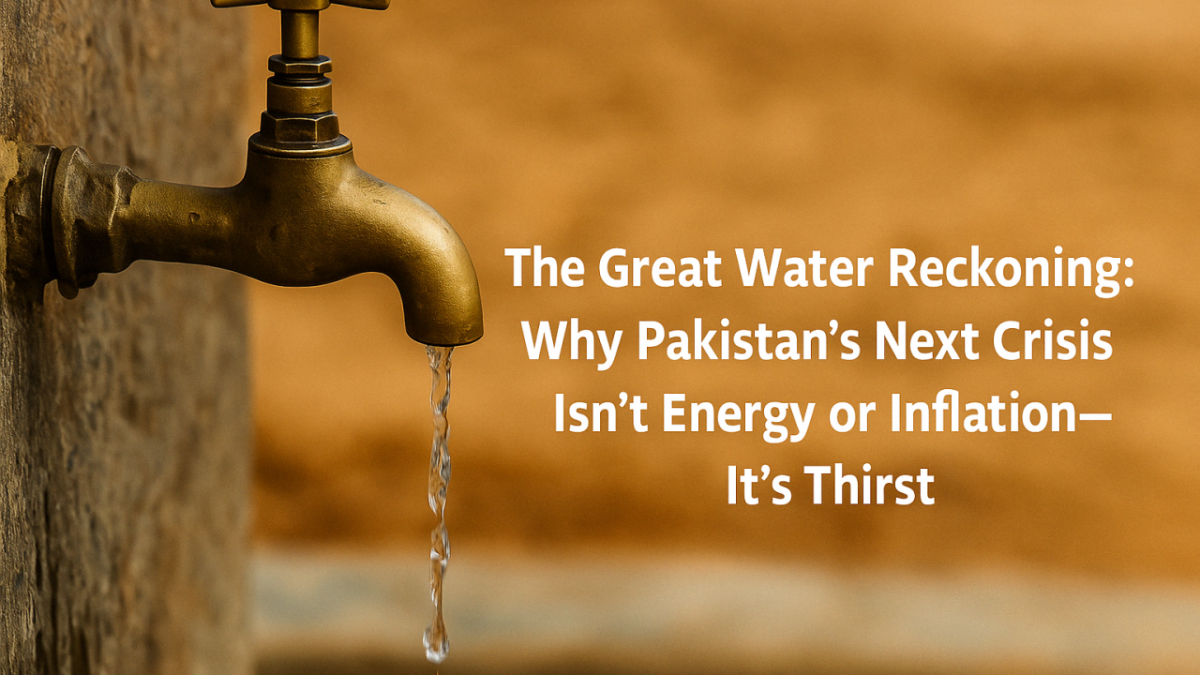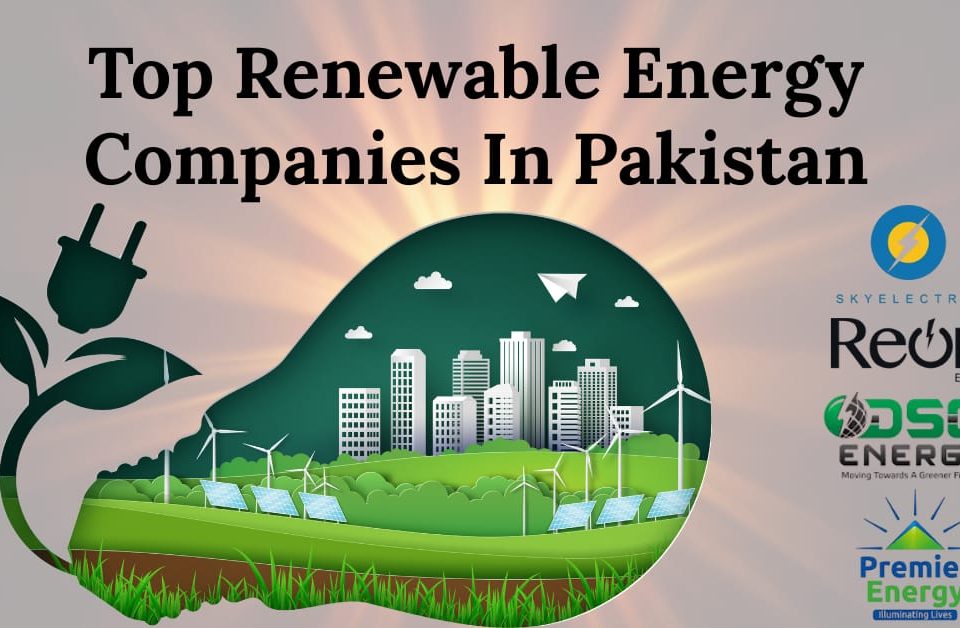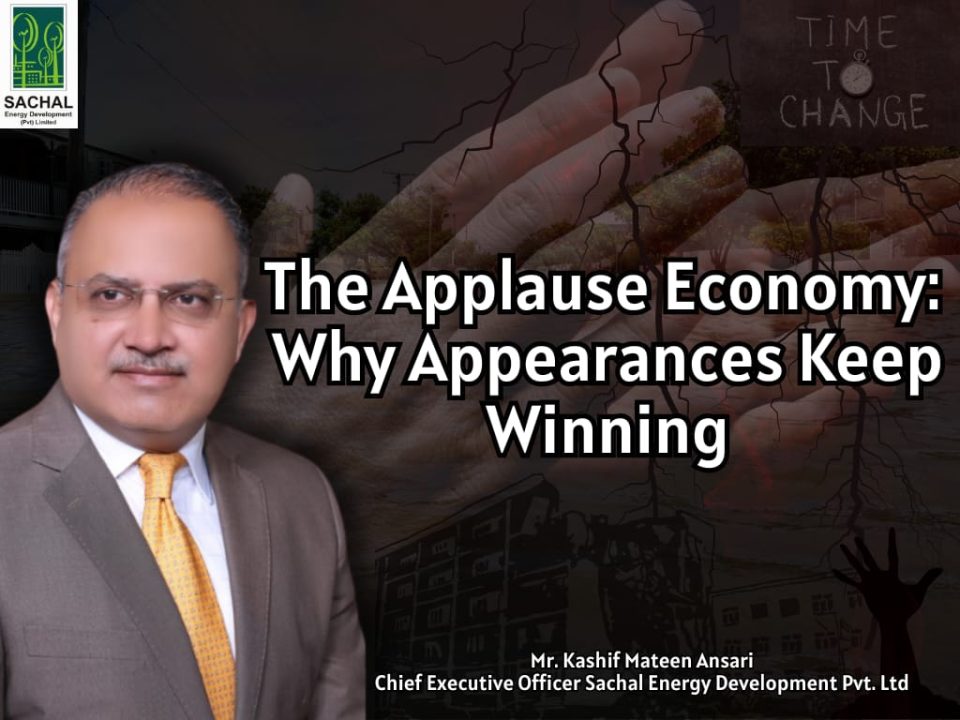
The Growing Role of Offshore Wind in a Sustainable Future
April 9, 2025
NUCLEAR VS RENEWABLES: FRENEMIES IN THE CLEAN ENERGY TRANSITION?
June 12, 2025It’s not the electricity bill that will break Pakistan. It’s the water bill we never got around to sending. We talk about power outages like clockwork. Circular debt dominates headlines. Petrol prices spark protests. But quietly, almost politely, a far more existential crisis is unfolding. The taps aren’t just dripping slower — they’re running dry.
This isn’t speculation. It’s arithmetic. Pakistan’s per capita water availability has plummeted from 5,260 cubic meters in 1951 to under 900 today. The critical threshold for water scarcity is 1,000. We’re already there. And by 2025, that number could fall below 500 — crossing into absolute scarcity. Yet, strangely, this barely sparks national debate. It’s as if we’ve normalised living on the edge of a drought. The Indus River system gives Pakistan roughly 145 million acre-feet of water annually. It’s a remarkable blessing. But our use of it? A masterclass in mismanagement. We store just 13% of it. The rest — a staggering 87% — flows out to sea.
In a country that should treat every drop like gold, this is policy-level negligence. Our last major dam was built in the 1980s. Meanwhile, we’ve built cities, gated housing schemes, and entire new districts — all without investing in water storage. When it rains, we complain. When it doesn’t, we panic. Either way, we rarely capture it. And then there’s agriculture. Agriculture consumes 98% of our water — yes, ninety-eight. But what are we growing with it? Mostly rice and sugarcane. Water-guzzling crops that make no sense in our climate, yet enjoy political protection and subsidies.
Farmers still use flood irrigation, a technique older than democracy, while modern water-saving tools like drip irrigation are viewed as exotic ideas. In urban areas, the madness continues. Karachi relies on tankers. Lahore’s aquifer is collapsing. In Islamabad, people now drill 500 feet just to hit water. The hydrant mafia thrives. Bottled water is booming. Water is either absurdly cheap, totally unavailable, or ruinously expensive — depending on your location and income. And yet we pretend this is normal.
We’ve never truly priced water. It flows, so we assume it’s infinite. Industries draw billions of litres annually — often unmetered, unmonitored, and undocumented. Most of our sewage — over 90% — is discharged untreated into rivers. We’ve created an entire economic model that assumes water is free. But the bill is coming due. Here’s where policy is beginning to catch up — slowly and painfully.
Under pressure from global lenders and internal technocrats, the government is drafting frameworks for water pricing, starting with industrial and commercial users. Predictably, there’s backlash. “It’ll destroy business!” “This is anti-growth!” Let’s be honest: if your business model depends on extracting a public resource for free, maybe it’s not a business model. It’s a liability. Some firms are catching on. One major textile exporter in Lahore, after pressure from an EU buyer, installed a zero-liquid-discharge system. They recycled every drop of water, slashed waste, cut costs, and earned ESG credibility in one move. They didn’t do it out of guilt — they did it because the global market is changing.
This is the opportunity that lies buried beneath the crisis. If we act now — metering large users, investing in modern irrigation, fixing leaks, and pricing groundwater appropriately — we don’t just avoid collapse. We create resilience. We build competitive advantage. But let’s not fool ourselves. The policy landscape is still patchy. Water governance is split between ministries. Provinces lack coordination. Climate adaptation is treated as a donor formality, not a national mission.
We don’t need more speeches or task forces. We need tanks. Pipelines. Recycling plants. Rainwater collection systems. Smart pricing. Enforced regulation. And a public campaign that treats water security the way we once treated terrorism or polio — as a non-negotiable priority.
There’s a Pashto proverb: — When the water runs out, even the mirage disappears.
That’s where we’re heading — unless we stop admiring the mirage and start building the well.
We’ve fought over gas.
We’ve fought over power.
We’ve fought over politics.
But the next war? It might be over a glass of water. And this time, we’ll only have ourselves to blame.
Article By Mr. Kashif Mateen Ansari





